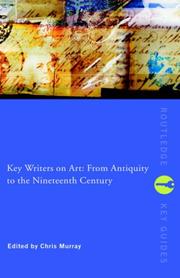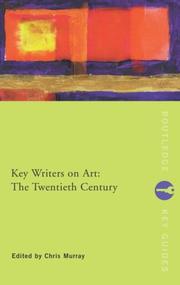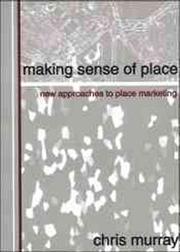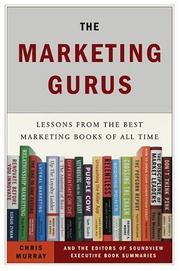| Listing 1 - 10 of 17 | << page >> |
Sort by
|
Book
ISBN: 1579581447 Year: 1999 Publisher: London Dearborn
Abstract | Keywords | Export | Availability | Bookmark
 Loading...
Loading...Choose an application
- Reference Manager
- EndNote
- RefWorks (Direct export to RefWorks)
Literature --- Critics --- Criticism --- Critiques --- Critique --- Biography --- Encyclopedias --- Biographie --- Encyclopédies --- Encyclopédies
Book
ISBN: 0856331724 Year: 1978 Publisher: Windsor [: NFER,
Abstract | Keywords | Export | Availability | Bookmark
 Loading...
Loading...Choose an application
- Reference Manager
- EndNote
- RefWorks (Direct export to RefWorks)
Youth --- Unemployed youth --- Jeunesse --- Jeunes chômeurs --- Employment --- Travail --- Unemployed --- Jeunes chômeurs

ISBN: 0415243017 0415243025 041522201X 0415222028 9780415243025 9780415222020 9780415243018 9780415222013 9780203986981 Year: 2003 Volume: *2 Publisher: London Routledge
Abstract | Keywords | Export | Availability | Bookmark
 Loading...
Loading...Choose an application
- Reference Manager
- EndNote
- RefWorks (Direct export to RefWorks)
Key Writers on Art: From Antiquity to the Nineteenth Century offers a unique and authoritative guide to theories of art from Ancient Greece to the end of the Victorian era, written by an international panel of expert contributors. Arranged chronologically to provide an historical framework, the 43 entries analyze the ideas of key philosophers, historians, art historians, art critics, artists and social scientists, including Plato, Aquinas, Alberti, Michelangelo, de Piles, Burke, Schiller, Winckelmann, Kant, Hegel, Burckhardt, Marx, Tolstoy, Taine, Baudelaire, Nietzsche, Ruskin, Pater
Art criticism --- Art--Critique --- Critique d'art --- Kunst--Kritiek --- Kunstkritiek --- art criticism --- kunstfilosofie --- kunstgeschiedenis --- kunstkritiek --- philosophy of art --- art history --- Art --- anno 1900-1999 --- Art criticism. --- Aesthetics of art --- Criticism

ISBN: 9780415222020 9780203987001 9781134597161 9781134597208 9781134597215 9780415222013 Year: 2003 Publisher: London ;New York Routledge
Abstract | Keywords | Export | Availability | Bookmark
 Loading...
Loading...Choose an application
- Reference Manager
- EndNote
- RefWorks (Direct export to RefWorks)

ISBN: 1873667183 Year: 2001 Publisher: Bournes Green : Comedia publications,
Abstract | Keywords | Export | Availability | Bookmark
 Loading...
Loading...Choose an application
- Reference Manager
- EndNote
- RefWorks (Direct export to RefWorks)
Book
ISBN: 1859861342 Year: 1996 Publisher: Oxford : Helicon,
Abstract | Keywords | Export | Availability | Bookmark
 Loading...
Loading...Choose an application
- Reference Manager
- EndNote
- RefWorks (Direct export to RefWorks)

ISBN: 1591841054 Year: 2006 Publisher: New York, N.Y. Portfolio
Abstract | Keywords | Export | Availability | Bookmark
 Loading...
Loading...Choose an application
- Reference Manager
- EndNote
- RefWorks (Direct export to RefWorks)
Book
ISBN: 9780198767015 Year: 2020 Publisher: Oxford Oxford University Press
Abstract | Keywords | Export | Availability | Bookmark
 Loading...
Loading...Choose an application
- Reference Manager
- EndNote
- RefWorks (Direct export to RefWorks)
Fascinated and often baffled by China, Anglophone writers turned to classics for answers. In poetry, essays, and travel narratives, ancient Greece and Rome lent interpretative paradigms and narrative shape to Britain's information on the Middle Kingdom. While memoirists of the diplomatic missions in 1793 and 1816 used classical ideas to introduce Chinese concepts, Roman history held ominous precedents for Sino-British relations according to Edward Gibbon and Samuel Taylor Coleridge. John Keats illuminated how peculiar such contemporary processes of Orientalist knowledge-formation were. In Britain, popular opinion on Chinese culture wavered during the nineteenth century, as Charles Lamb and Joanna Baillie demonstrated in ekphrastic responses to chinoiserie. A former reverence for China yielded gradually to hostility, and the classical inheritance informed a national identity-crisis over whether Britain's treatment of China was civilized or barbaric. Amidst this uncertainty, the melancholy conclusion to Virgil's 'Aeneid' became the master-text for discussion of British conduct at the Summer Palace in 1860. Yet if Rome was to be the model for the British Empire, Tennyson, Sara Coleridge, and Thomas de Quincey found closer analogues for the Opium Wars in Greek tragedy and Homeric epic. Meanwhile, Sinology advanced considerably during the Victorian age. Britain broadened its horizons by interrogating the cultural past anew as it turned to Asia; Anglophone readers were cosmopolitans in time as well as space, aggregating knowledge of Periclean Athens, imperial Rome, and many other polities in their encounters with Qing Dynasty China.
English literature --- Orientalism in literature --- History and criticism --- Orient --- In literature.
Book
Abstract | Keywords | Export | Availability | Bookmark
 Loading...
Loading...Choose an application
- Reference Manager
- EndNote
- RefWorks (Direct export to RefWorks)
Book
Abstract | Keywords | Export | Availability | Bookmark
 Loading...
Loading...Choose an application
- Reference Manager
- EndNote
- RefWorks (Direct export to RefWorks)
| Listing 1 - 10 of 17 | << page >> |
Sort by
|

 Search
Search Feedback
Feedback About UniCat
About UniCat  Help
Help News
News